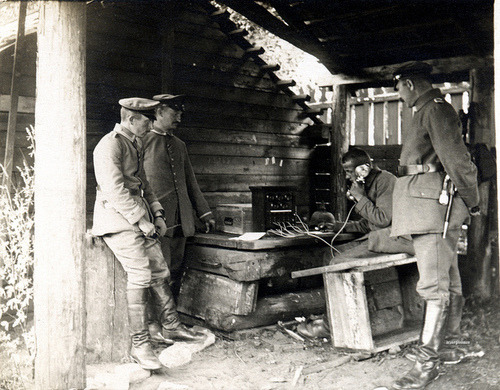It’s now only a few weeks to go before we get to 4 August, the point when – one hundred years ago, to the day – Britain entered the First World War. It’s an auspicious moment, of course, and when it arrives I imagine there will be as many different responses as there are people responding.
There’s no ‘official’ reaction that we in Government have authorised for everyone to take. It will be different for each and every one of us. And that of course is how it should be in a free country like ours. No massed ranks of flag-waving schoolchildren lining the street, and no endless military march past with splendid bands playing and war planes roaring overhead.
Reflection, respect and Remembrance
That’s not the British way, thank goodness. There’s no country in the world better at State Ceremonial occasions than us, as the millions of tourists who come here from overseas every year will testify. But moments like the Centenary of that awful conflict need a different approach, with reflection, respect and remembrance at the heart. Not misery and gloom, but not street parties or flag waving either.
But there is one question that I think we can properly ask in this period before the national events get underway. And that is: why are we doing all this now? Why are we marking the centenary of the beginning of the war on 4 August 2014, rather than the end on Armistice Day in 2018?
Living memory and written history
The simple answer, of course, is that we’re going to be marking both ends of the war with national events, and many historical landmarks in between. This will include the fact that, yes, we won the war, and anyone who suggests that we’re shying away from that is simply mistaken. But for it to have any meaning for young people today beyond that one undisputed fact, then we have to look at it in the round.
I’ve said it before, but it bears repeating: the centenary is the point where living memory starts to bed down to become written history. And we mark the beginning on 4 August, and the totality of the conflict that came next, across the 51 months that followed, because it is the whole of the war that matters to us.

All those years ago
The end of the war was, of course, the beginning of all that followed. The whole of those four long years – what it meant and what came from it – matters fundamentally too.
So our programme is four years long. There will be solemn national moments, and cultural commissions to help people feel how it must have been for people all those years ago, but there are also ongoing programmes of education, interpretation and explanation that will begin during the centenary years but which will continue beyond that, and have an effect for long afterwards.
More than a single Memorial Service writ large
All the small local projects, many funded by the Heritage Lottery Fund, will live in people’s minds for years after November 2018, because the process has been bottom-up. Communities have come up with the ideas, and then they’ve rolled up their sleeves and got on with them. Some have needed a bit of help in the form of a small grant to get started, but most have not.
The Government firmly believes that the Centenary has to be more than simply a single memorial service writ large. Those four years shaped and defined us as a multi-cultural nation and their legacy will remain, as a positive and immensely valuable part of who we are, for generations to come.
 Department for Culture, Media and Sport
Department for Culture, Media and Sport